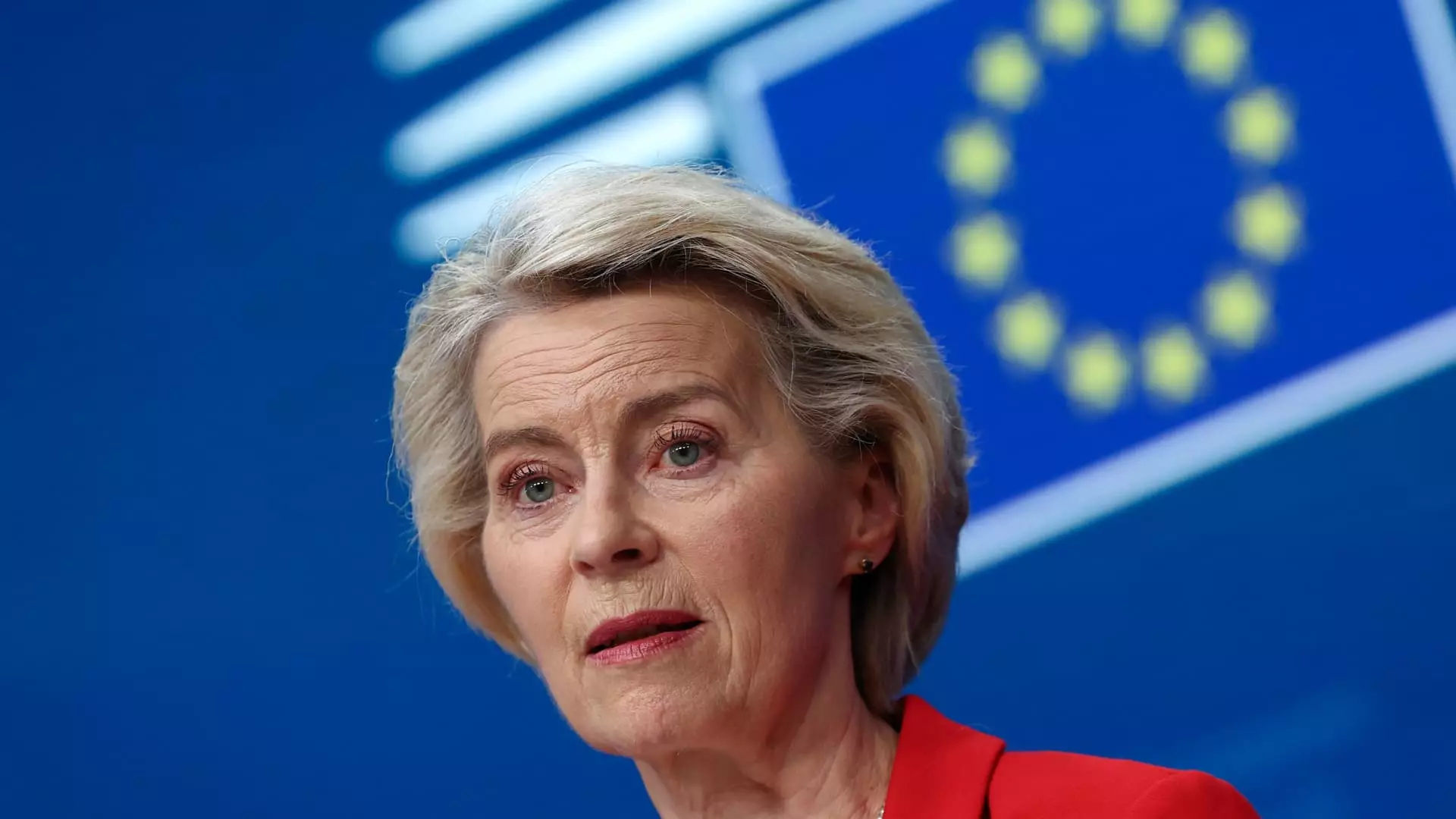Beneath the glossy surface of the European Union’s diplomatic tone lies a troubling reality: the transatlantic partnership, long heralded as a cornerstone of global stability, is teetering under the weight of aggressive tariffs and unyielding nationalist rhetoric. For years, the narrative has been that the EU and the U.S. share common values and economic interests, but recent developments expose those claims as increasingly superficial. The looming threat of retaliatory tariffs revealingly underscores how fragile this alliance truly is—caught in the clash between unilateral American interests and the EU’s desire for a balanced, cooperative relationship.
The recent decision by the EU to hold back on immediately imposing counter-measures, instead suspending retaliatory tariffs to pursue negotiations, signals a diplomatic door that is open but not infinitely so. This deferment of economic hostilities is portrayed as diplomatic flexibility, yet it also underscores the EU’s constrained position: it is being forced to wait and watch as the American administration flexes its muscle on the world stage. This strategic patience, however, should not obscure the underlying message—European economies, from pharmaceuticals to luxury wines, are vulnerable in this ongoing power game. The superficial civility masks a deeper anxiety: that economic coercion rooted in nationalism threatens to unravel decades of integrated global trade.
The Flawed Assumption of American Leadership
There exists a pervasive misconception that U.S. policies, especially under Trump’s protectionist approach, are driven solely by economic rationality. In reality, these tactics are emblematic of a broader, more troubling shift toward wielding economic power as a tool of national security and political posturing. Trump’s invocation of the trade deficit as a security threat is less about pragmatic economics and more about stoking nationalist sentiments. It signals a rejection of multilateral agreements that prioritize cooperation; ultimately, it’s an American policy that risks destabilizing the global order for short-term political gain.
The emphasis on “negotiations” as the sole avenue for resolution is a double-edged sword. While diplomacy is vital, it dangerously relies on the assumption that the U.S. will enter good-faith discussions. Given the volatility of Trump’s approach, this optimism is misplaced. Europe must steel itself for the reality that American tariffs are less about fair trade and more about pressing political leverage—an effort to reset the global economic framework to favor American interests, often at the expense of allies and broader stability.
The Power Dynamics Behind the Curtains
The current tension exposes a critical power imbalance. Europe, as the largest trading bloc on earth, cannot simply wait out U.S. whims like a passive actor in this game. Its economy is intricately linked with American consumers and multinational companies, yet it lacks the equivalent leverage to force reciprocation. The narrative of Europe “negotiating with its head held high” sounds admirable, but in practice, it often translates to European leaders attempting to balance a delicate act—claiming sovereignty while subtly accommodating U.S. demands.
Furthermore, the political motives behind U.S. tariffs reveal a deeper ideological shift towards economic nationalism. The Trump administration’s framing of tariffs as national security threats is a dangerous oversimplification that conveniently justifies unilateral action. This approach weakens the multilateral institutions that have historically safeguarded global trade. As a consequence, Europe faces a stark choice: continue to play the game within the confines of a shrinking diplomatic space or push for reforms that prioritize multilateralism, environmental sustainability, and equitable growth.
Why This Matters for Progressives
For liberals committed to a fairer and more balanced global economy, the ongoing turmoil offers both a warning and an opportunity. It highlights the urgency of resisting nationalist agendas that threaten to undermine decades of diplomatic progress. Instead of passively accepting this new normal, progressives must advocate for stronger institutions, fair trade practices, and policies that prioritize human and environmental well-being over short-term economic dominance.
The transatlantic relationship is at a crossroads. If Europe continues to cower in the face of American unilateralism, it risks losing its economic sovereignty and moral authority on issues like climate change, digital governance, and workers’ rights. Supporting dialogues that emphasize mutual benefits, pushing back against protectionism, and fostering policies rooted in social justice must become central to a strategic response. The EU’s current moment—hesitant yet hopeful—should be harnessed as a catalyst for reform, not a capitulation to the chaos of short-sighted national interests.
In the end, the European Union cannot afford to be a passive spectator in this geopolitical chess match. Its future depends on recognizing that standing firm on principles of fairness, multilateral cooperation, and sustainable growth is the real path to enduring influence—and peace—in an increasingly tumultuous world.


Leave a Reply